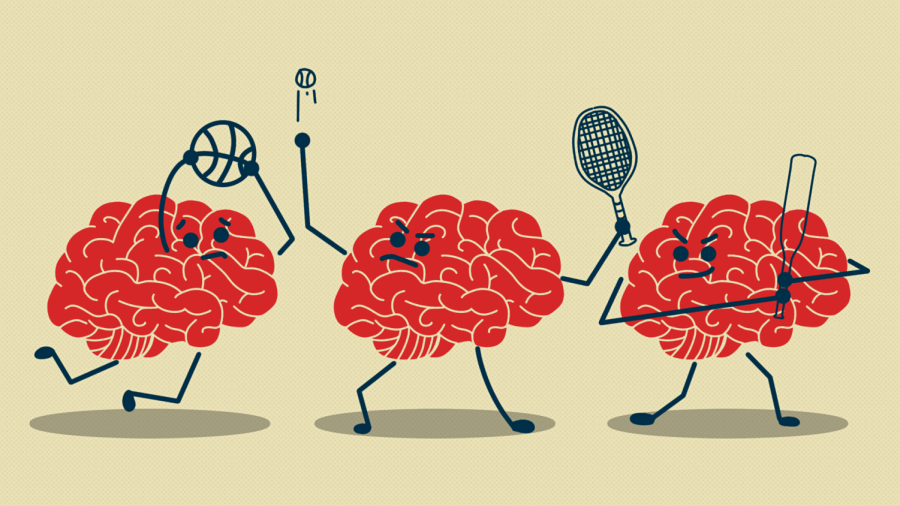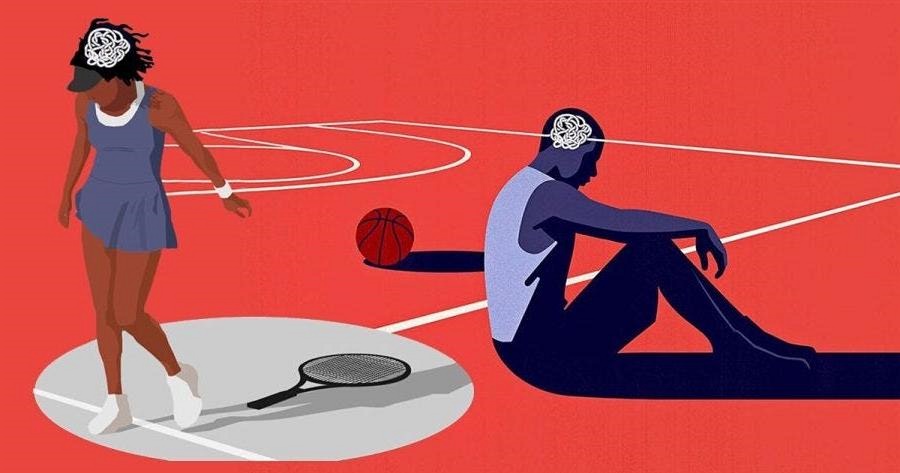Last Updated on: 18th December 2024, 12:35 pm
Sports psychology examines the connection between mental health and athletic performance, focusing on how psychological factors affect physical abilities. Mental conditioning is crucial for enhancing athletic performance. This article provides a guide to mental strategies in sports, detailing the discipline’s objectives and its importance in athletics.
Sports psychology not only boosts performance but also builds resilience, focus, and motivation. It explores the mind’s ability to meet sports’ physical demands. This guide outlines essential techniques and strategies to help athletes achieve peak mental fitness, paving the way for exceptional athletic accomplishments.
The Psychological Framework of an Athlete

Mental Attributes of Successful Athletes
- Resilience: Essential for recovering from setbacks and continuing to strive for success.
- Focus: Necessary for maintaining concentration and staying on task during critical moments.
- Motivation: Drives athletes to pursue and achieve their goals relentlessly.
The Role of a Sports Psychologist in an Athlete’s Career
Sports psychologists are key in an athlete’s career, developing strategies to enhance mental resilience, focus, and motivation. They provide personalized sessions to address each athlete’s psychological needs, helping to overcome mental barriers and achieve peak performance.
Common Psychological Challenges Faced by Athletes
- Anxiety, pressure to perform, and fear of failure can undermine confidence and enjoyment in sports.
- Burnout is a significant challenge due to the demands of training and competition.
The psychological framework of an athlete is as vital as physical training. Resilience, focus, and motivation require constant conditioning. With sports psychologists’ support, athletes can tackle psychological challenges, ensuring their mental fitness matches their physical capabilities.
Techniques for Mental Conditioning

Goal Setting and Visualization Techniques
- Set clear, achievable goals to guide mental conditioning.
- Athletes should visualize success, imagining the steps to reach their objectives.
- Visualization helps athletes mentally rehearse performance, boosting confidence and readiness.
Mindfulness and Meditation Practices
- Mindfulness and meditation enhance concentration and relaxation.
- Regular practice helps athletes focus on the present, reducing distractions and improving focus.
- This awareness improves reaction times and decision-making.
- Meditation aids relaxation, helping manage competition pressures and maintain clarity.
Cognitive-Behavioral Approaches
- Cognitive-behavioral techniques effectively manage stress and anxiety.
- These strategies involve challenging negative thoughts and fostering positive beliefs.
- Athletes learn to control emotional responses, viewing challenges as growth opportunities.
Mental conditioning is as crucial as physical training. Techniques like goal setting, visualization, mindfulness, and cognitive-behavioral approaches equip athletes to overcome obstacles and enhance performance. Integrating these practices builds a strong psychological framework, preparing athletes for competition demands.
The Impact of Mental Conditioning on Performance

Case Studies of Athletes Who Have Benefited from Sports Psychology
- Michael Phelps credits mental conditioning for his ability to perform under pressure.
- Stephen Curry’s focus and resilience are enhanced through mindfulness and visualization.
Scientific Evidence Supporting the Effectiveness of Mental Training
Research supports mental conditioning’s value. Studies show athletes engaging in psychological training have improved focus, confidence, and stress management. For example, a study in the Journal of Applied Sport Psychology found visualization enhances free-throw performance in basketball. This evidence confirms mental strategies are essential for peak performance.
The Relationship Between Mental Health and Physical Performance
Mental health and physical performance are closely linked. Athletes with mental health challenges often see performance declines, while a strong mindset can boost performance. Mental conditioning builds resilience, helping athletes navigate career ups and downs. Mental health is the foundation for physical performance, highlighting sports psychology’s critical role in success.
Implementing a Mental Conditioning Program

Steps to Develop a Personalized Mental Conditioning Plan
Developing a mental conditioning plan starts with assessing an athlete’s psychological strengths and weaknesses. Identify areas for improvement like resilience, focus, or motivation. Set specific, measurable goals to track progress. Use techniques like visualization, mindfulness, and cognitive-behavioral strategies tailored to the athlete’s needs. Regular evaluation and adjustment keep the plan effective and aligned with evolving goals.
The Role of Coaches and Sports Psychologists in This Process
Coaches and sports psychologists are crucial in developing and implementing mental conditioning programs. Their expertise in identifying psychological needs and crafting strategies enhances mental resilience and performance. They provide support and guidance to help athletes overcome psychological challenges and reach their potential.
Integrating Mental Conditioning with Physical Training Routines
Mental conditioning should be integrated with physical training for optimal results. This holistic approach ensures mental and physical fitness progress together. Coaches can incorporate mental drills into workouts, like mindfulness during warm-ups or visualization post-training. This integration creates well-rounded athletes ready for competition demands.
Implementing a mental conditioning program requires careful planning, expert guidance, and integration with physical training. By personalizing the approach and leveraging coaches’ and psychologists’ expertise, athletes develop the mental resilience and focus needed for peak performance. As mental and physical conditioning merge, athletes can transcend limits and achieve greatness.
Overcoming Setbacks and Maintaining Mental Health

Strategies for Dealing with Injuries and Defeats
- Acknowledge the emotional impact of setbacks to move forward constructively.
- Develop a step-by-step recovery plan with realistic timelines and milestones.
- Seek professional advice for physical rehabilitation and mental support.
The Importance of Mental Resilience and Adaptability
- Mental resilience is crucial for withstanding competition pressures and setbacks.
- Adaptability allows athletes to adjust strategies and goals as circumstances change.
- Cultivate these qualities through mental conditioning exercises and positive self-talk.
Support Systems and Resources
- A robust support system including coaches, teammates, family, and professionals is invaluable.
- Access to counseling services, mental health hotlines, and wellness programs provides essential tools for mental health.
- Encourage open conversations about mental health to destigmatize these issues and foster a supportive recovery environment.
Overcoming setbacks and maintaining mental health are critical in sports psychology. Effective strategies, mental resilience, and support systems help athletes navigate psychological challenges. This fortitude aids recovery from setbacks and strengthens mental health, supporting sustained athletic achievement.
Wrapping It Up
Mental conditioning is essential for athletic success. It combines psychological strategies and physical training to unlock potential, balancing mind and body for peak performance. This journey, supported by coaches and psychologists, leads to athletic and personal achievements. Embrace mental conditioning as a cornerstone of sports excellence and life’s victories.

